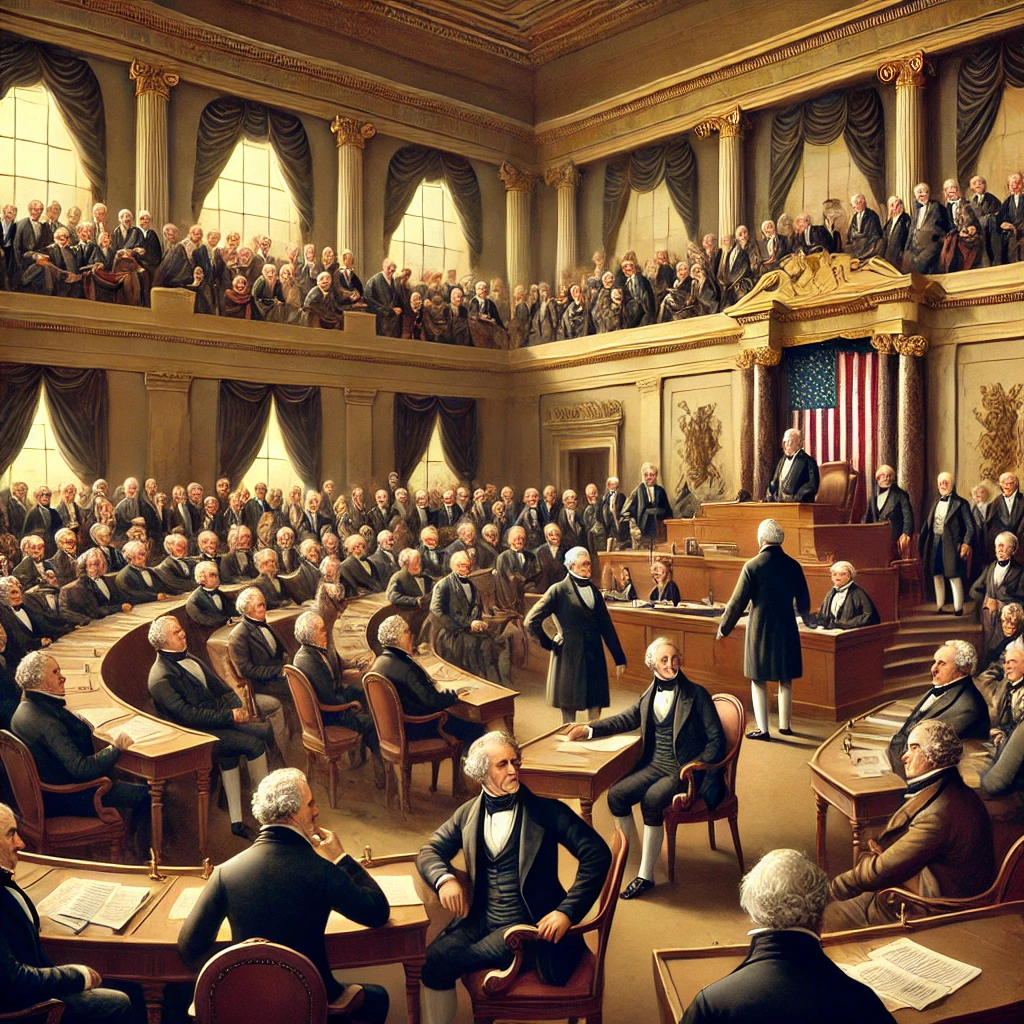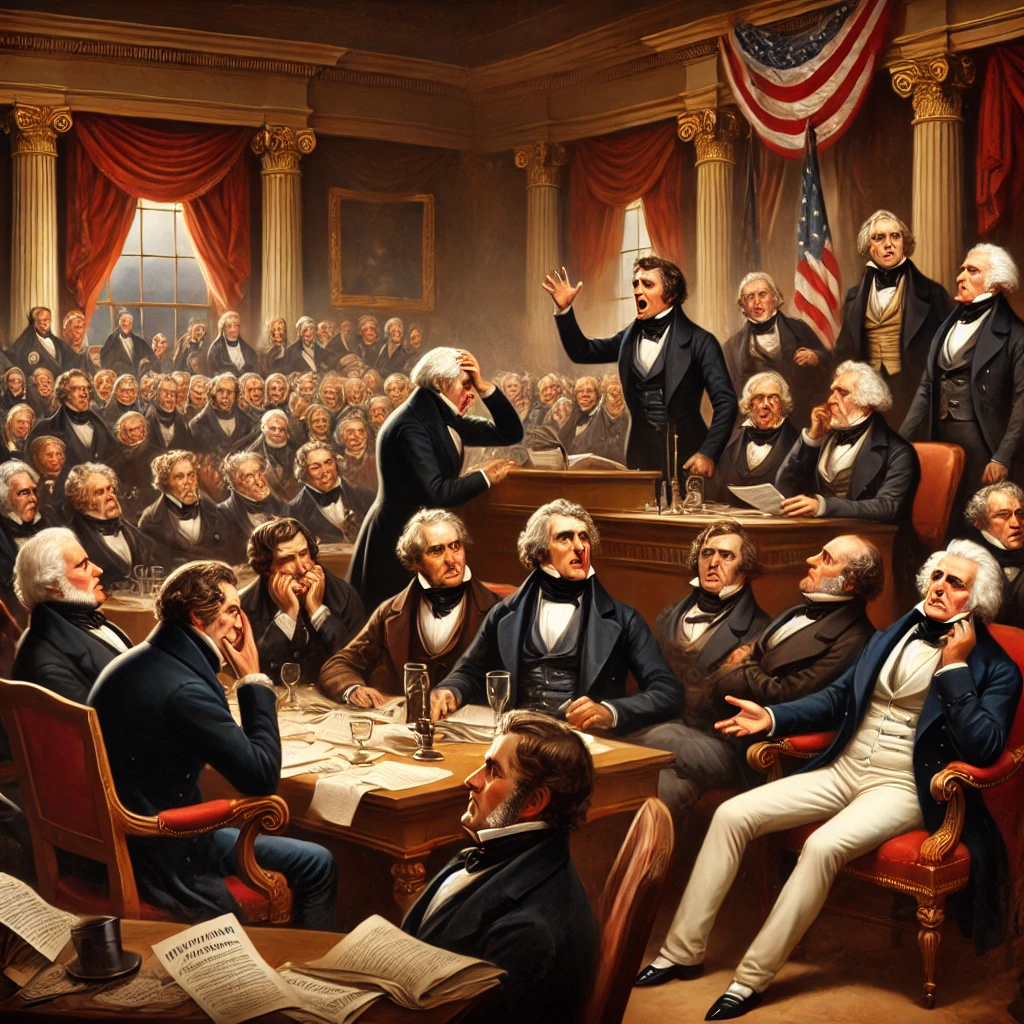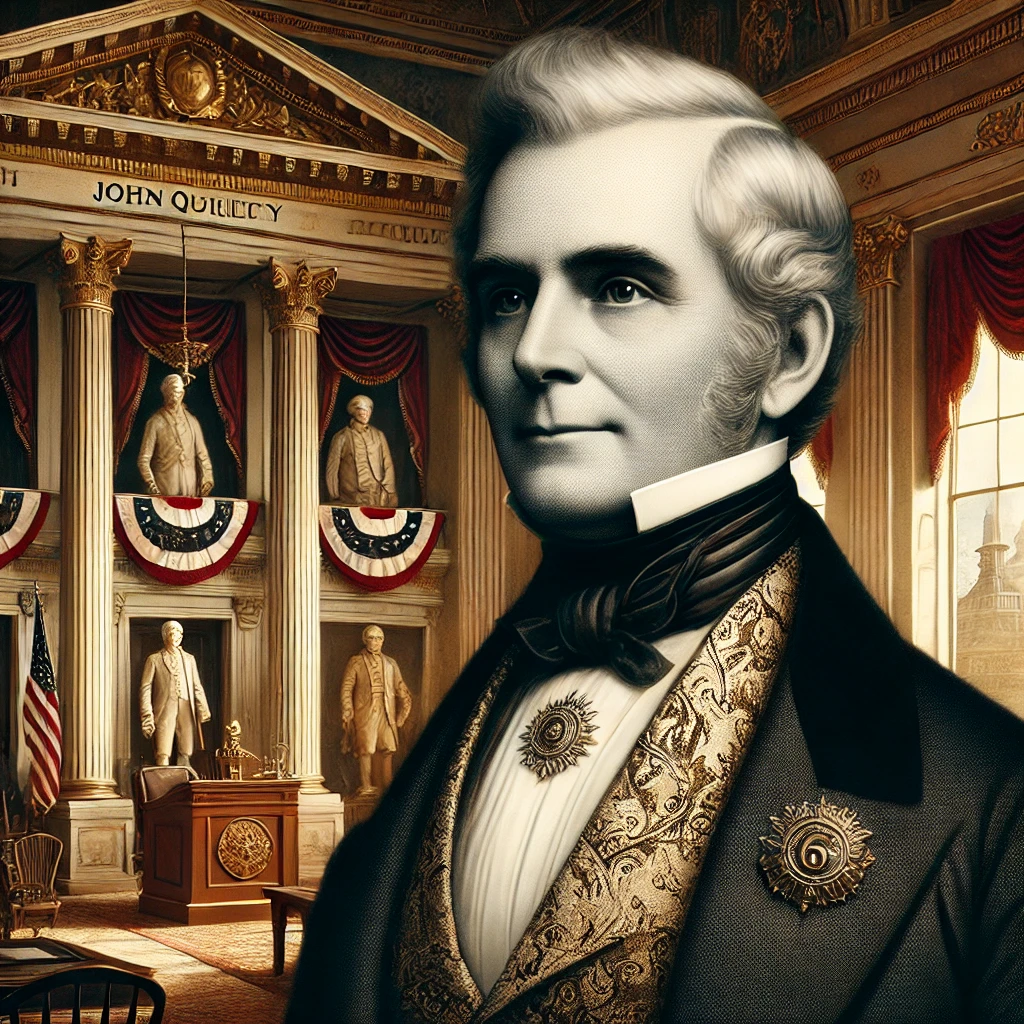On this day in 1825, following a disputed election, the U.S. House of Representatives elected John Quincy Adams as the sixth President of the United States, despite Andrew Jackson winning the popular vote. The outcome, determined by the House under the provisions of the Twelfth Amendment, remains one of the most controversial presidential elections in American history. Adams’ victory was secured through what opponents labeled a “corrupt bargain,” a claim that would shape political rivalries for years to come.

A Controversial Election and the Role of the House
The election of 1824 was one of the first in which the popular vote played a significant role, but no candidate secured an outright majority in the Electoral College. Four candidates—Andrew Jackson, John Quincy Adams, William Crawford, and Henry Clay—split the electoral votes, with Jackson leading in both the popular and electoral tallies. However, because he did not achieve the required majority of electoral votes, the decision fell to the House of Representatives, as outlined by the Constitution. Each state delegation cast one vote, and after intense negotiations, Adams emerged victorious on the first ballot.
The most controversial aspect of Adams’ victory was the role of Henry Clay, the Speaker of the House, who used his influence to rally support for Adams. Shortly after Adams took office, he appointed Clay as his Secretary of State, a move that infuriated Jackson and his supporters, who accused them of striking a corrupt bargain. The charge of political collusion fueled Jackson’s campaign for the next election and solidified deep divisions in American politics.

The Presidency of John Quincy Adams
John Quincy Adams entered the White House under a cloud of controversy, which hampered his ability to push forward his ambitious agenda. A staunch advocate for national improvements, Adams proposed extensive infrastructure projects, educational initiatives, and scientific advancements. However, his opponents in Congress, particularly Jackson’s supporters, worked tirelessly to block many of his initiatives, viewing his administration as illegitimate.
Despite these political obstacles, Adams left a lasting mark on the nation. His vision for internal improvements helped lay the foundation for future transportation networks, and his emphasis on diplomacy reinforced America’s role on the global stage. Yet, his presidency was ultimately overshadowed by the controversy surrounding his election, and he failed to win reelection in 1828, when Jackson decisively defeated him.
Lasting Impact on American Politics

The election of 1824 and its aftermath reshaped American politics in profound ways. The controversy surrounding Adams’ victory helped fuel the rise of the Democratic Party under Andrew Jackson, who capitalized on the public’s anger to build a powerful political movement. The bitter divisions exposed by the election contributed to the shift toward a more democratic electoral process, with an increasing emphasis on the popular vote in future elections.
Adams himself remained a significant figure in American history after leaving the presidency. He went on to serve in the U.S. House of Representatives for nearly two decades, where he became a vocal opponent of slavery and a defender of civil liberties. His post-presidential career reinforced his legacy as a principled statesman, even as the controversy of his election continued to be debated.
The events of February 9, 1825, serve as a reminder of the complexities of the American electoral system and the enduring impact of political maneuvering. The election of John Quincy Adams demonstrated the power of institutional rules in determining leadership, a lesson that remains relevant in contemporary political discourse.
